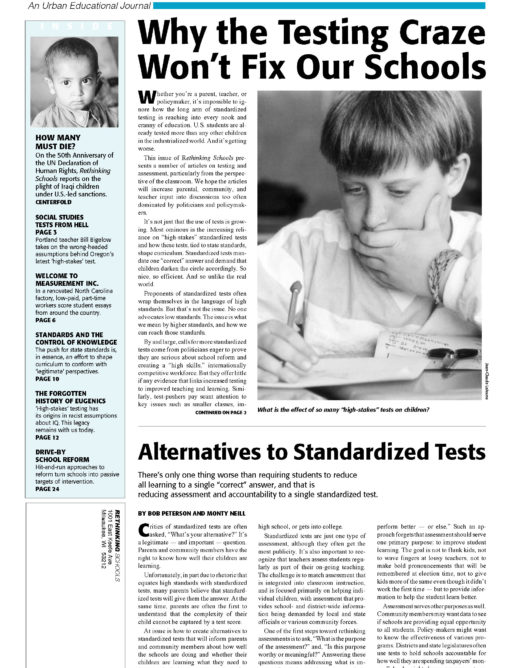Preview of Article:
Reclaiming Assessment
Instead of sending its essays off to a for-profit scoring company, Portland teachers score papers as part of a discussion about what is good writing and good writing instruction.
Instead of shipping off essays to be graded elsewhere, teachers in Portland are scoring student work, and using the task as a basis for discussions about good writing and good teaching.

